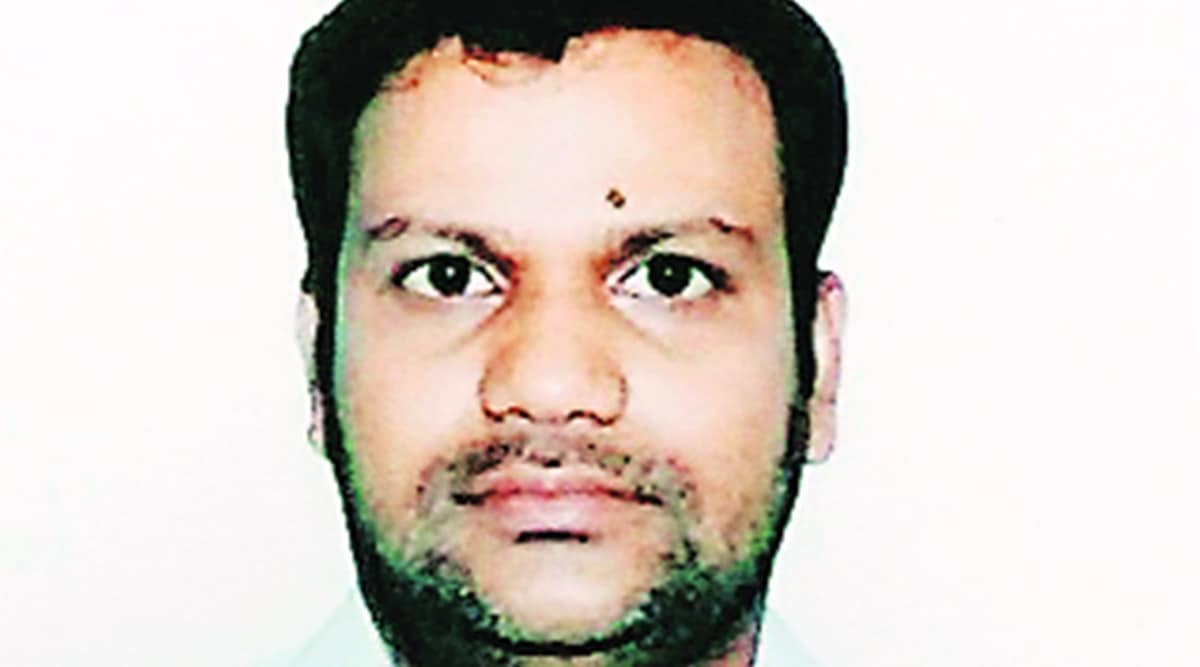 Dr Rashmi Ranjan Guru
Dr Rashmi Ranjan Guru Since mid-March the Covid-19 Hospital in the Nehru Hospital Extension has been Dr Rashmi Ranjan Guru’s home- a space he says, he has nurtured like a child, giving his best, physically, mentally and emotionally.
On August 15, Dr Guru, Resident, MD Hospital Administration, PGIMER, was awarded a commendation certificate by the UT Administration for his contribution in the battle against Covid-19, a recognition he cherishes and which he reflects, would not have been possible without the support and mentorship of Professor A K Gupta, Medical Superintendent and Professor Vipin Kaushal, Department of Hospital Administration, PGI MER.
Dr Guru, joined PGIMER in July 2019, and is natively from Odisha, where he completed his MBBS. He has served as a resident doctor at the National Institute of Science Education and Research in Bhubaneswar, Indian Institute of Technology in Roorkee and AIIMS in Bhubaneswar.

“My diverse experience has helped me to understand and apply the technical aspects of the field and use these to enhance medical services. I chose Hospital Administration for my MD because I wanted to develop clinical skills and I was ranked number one,” shares Dr Guru.
Working at Nehru Hospital Extension, he says, is a privileged experience, for it has a platinum rating by the Indian Green Building Council and has all the advanced technical facilities, apart from natural light and air.
“As a student of Dr A K Gupta, I have learnt the finer aspects of hospital administration, with Professor Gupta focusing on providing solutions to the problems of patients, giving us practical methods to solve issues and taking us through many intricate processes of the subject. Over time, I developed deep insights into the subject, with Professor Vipin assigning me tasks to develop my skills, including understanding the academic aspects of the field. On March 14, I was assigned to help develop the Covid Hospital, for patients of Chandigarh and the surrounding region. It has been a tremendous team effort with Professor Jagat Ram, Dr Puri, Professor Gupta and Professor Kaushal making sure that all the systems and processes are in place and work is quick, transparent and effective,” says Dr Guru.
Dr Guru says the first step was to develop separate areas, entrances and exits for patients, doctors and health workers to contain the spread of infection. A standard operating plan for doctors, nurses, technicians, human resource management and development of infrastructure had to be devised.
Dr Guru says the facility has been given a complete mental, physical and emotional power. The challenges, he says are many and one being that he did not get time to go home for close to six months.
Each day is a new test, with a seven-day roster plan meaning that new doctors, nurses, technicians and other health staff have to be trained consistently and manpower management becomes a large responsibility. Coordination with a number of teams, making sure every process is in place, be it the OT, ventilators, cameras, transportation…he adds is a huge task, for a small slip can cause delays in treatment.
The PPE, adds the doctor, reduces the brain power and glucose levels, with not adequate oxygen going to the brain, with a number of doctors and health workers experiencing nausea, headaches, fainting spells and the heat exertion also takes a toll.
“As many as 2,200 doctors, nurses and health workers have been a part of this Covid area, and only six people have tested positive in the area till now. I have developed a high-tech surveillance system and mobile app for the PPE donning and docking area, with a camera and audio system giving instructions to the staff on safety aspects. I have nurtured this project like a child and everyone in this building is motivated and charged to provide the best and fight this pandemic.”
The plans for the future includes increasing the number of beds in the ICU to another 100, have more dialysis machines, CATH Labs, Radiology Lab and develop more operation theatres, including a Cardiac OT to facilitate patients.
More testing, he adds, will help us isolate the positive cases and prevent community spread, with self-isolation paramount to prevent the spread.
“We have developed video surveillance in the ICU here, where a camera is fitted on the roof of the patient’s bed, and from the control room, which has LED televisions, we can monitor breathing rate, the working of the ventilator etc. It is an advanced patient care system we hope to install for all ICU beds. At this time, most important is that we have adequate knowledge about coronavirus. I have been here for six months, working tirelessly in the patient area and rescue area, but have not been infected, because I follow the golden rules of wearing a mask, washing my hands and being safe. We need to prevent infection. In the future, I hope I can make similar buildings in other hospitals of the country and also use advanced technology to treat and cure,” sums up Dr Guru.